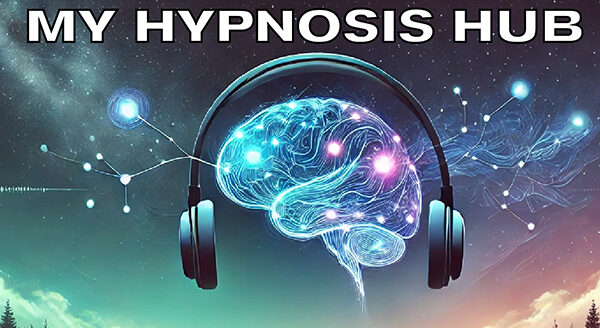Can Hypnosis Help with Depression? Exploring a Mind-Body Path to Wellness
Can hypnosis help with depression and bring relief where other strategies might have stalled? This question resonates with countless people seeking hope and healing. Depression, a common yet deeply complex mental health condition, can disrupt every corner of a person’s life—from work and relationships to even the simplest daily routines. While therapy, medication, and lifestyle changes are often the first lines of defense, the idea that hypnosis could also support emotional balance intrigues many. In this post, we’ll journey through what depression is from a medical standpoint, how hypnosis aims to soothe the mind’s turbulent waters, and why this holistic approach may prove valuable. Plus, you’ll hear from those who’ve found relief through hypnosis and discover a specialized hypnosis audio program designed to ease the grip of depression.
If you’re curious about an at-home, guided solution, consider this Overcome Depression Hypnosis Audio.
Can Hypnosis Help with Depression? Table of Contents
- Depression from a Medical Viewpoint
- Can Hypnosis Help with Depression? Unpacking the Basics
- How Hypnosis Targets Depression’s Emotional Core
- Two Powerful Testimonials: Hope Beyond Despair
- Practical Tips for Integrating Hypnosis into Your Life
- Benefits of a Holistic Approach
- Conclusion: Embrace a Future of Emotional Resilience
Can Hypnosis Help with Depression – Depression from a Medical Viewpoint
Understanding the Condition
Depression, known clinically as major depressive disorder (MDD), is a multifaceted mental health condition characterized by persistent sadness, hopelessness, and a loss of interest in activities one once found pleasurable. According to many health organizations, it’s not just about “feeling blue” for a couple of days; it involves tangible changes in how the brain processes emotions and stress responses. Common symptoms include:
- Ongoing fatigue or low energy
- Changes in appetite or weight
- Sleep disturbances (insomnia or oversleeping)
- Difficulty concentrating
- Feelings of worthlessness or guilt
- Recurring thoughts of death or suicide
Root Causes and Risk Factors
While science continues to reveal nuances in how depression manifests, it’s widely accepted that both genetic and environmental factors play a role. Traumatic life events, chronic stress, or hormonal imbalances can all tip the scales. Moreover, imbalances in neurotransmitters like serotonin or dopamine may contribute to depressive episodes. Because depression arises from such a complex web of influences, many practitioners advocate a multi-pronged treatment approach—one that may include medication, therapy, lifestyle modifications, and, increasingly, complementary methods like hypnosis.
Standard Approaches
Conventional treatments often involve antidepressant medications that help regulate neurotransmitters, coupled with psychotherapy (e.g., cognitive behavioral therapy). While many people benefit from these interventions, they might not work for everyone, or they might leave certain emotional layers unaddressed. This gap has led some to explore alternative or supplemental therapies, asking anew: Can hypnosis help with depression?
Can Hypnosis Help with Depression? Unpacking the Basics
Rewiring the Mind Through Relaxation
Hypnosis is rooted in the principle that our subconscious beliefs and emotional patterns wield a profound influence over how we feel and behave. For someone experiencing depression, negative thinking and self-defeating mindsets often reside below conscious awareness, continuously feeding low mood and hopelessness. Hypnosis aims to guide you into a relaxed, receptive mental state where you can “speak” to your subconscious, neutralizing or replacing these harmful scripts.
Addressing Emotional Roadblocks
Much like therapy, hypnosis encourages self-examination. However, it goes deeper into the realm of unconscious biases, memories, or emotional scars that conventional talk therapy might only graze. By calmly and methodically introducing new, uplifting suggestions—such as “I am capable,” “I can rise above life’s hurdles,” or “I deserve happiness”—hypnosis can shift the emotional foundation that fuels depressive episodes.
Eager to test its potential? You might find the Overcome Depression Hypnosis Audio invaluable.
Complementing Existing Therapies
Hypnosis isn’t typically seen as a standalone cure. Instead, think of it as a potent ally that complements more traditional measures—talk therapy, medication, or lifestyle changes like better nutrition and exercise. While you should always consult a healthcare professional for a personalized plan, many find that adding hypnosis expedites emotional relief, allowing them to reap deeper benefits from other treatments as well.
Can Hypnosis Help with Depression – How Hypnosis Targets Depression’s Emotional Core
Relaxation: The First Step
When you enter a hypnotic state, your mind and body are calmed, reducing stress hormones like cortisol. This is crucial for someone battling depression, as chronic stress can worsen low moods. Relaxation alone isn’t the entire answer, but it lays the groundwork for more profound internal work.
Positive Suggestion and Imagery
Next, a hypnosis session typically introduces affirmations or imagery designed to nurture self-esteem. If your depressive thoughts revolve around feeling inadequate or stuck, the hypnotist or self-hypnosis program may guide you to envision yourself succeeding at tasks, or acknowledging your worth in small, tangible ways. This mental “rehearsal” slowly dismantles the negative thinking patterns fueling your sense of despair.
Reinforcing Hope and Motivation
Depression often drains motivation. Hypnosis counters by reinforcing reasons to look forward—be it reconnecting with hobbies, strengthening relationships, or simply relishing the sunrise each morning. By reinstating even a flicker of optimism at the subconscious level, you cultivate the resilience needed to navigate daily life without succumbing to persistent gloom.
Can Hypnosis Help with Depression – Two Powerful Testimonials: Hope Beyond Despair
Testimonial 1: “Hypnosis Helped Me Break the Fog”
“I had been wrestling with depression for almost three years, and while therapy and medication helped some, I still felt stuck in this constant fog. A friend suggested asking, ‘Can hypnosis help with depression?’, so I tried a guided audio program. Within weeks, I noticed I didn’t wake up dreading the day as much. I started looking forward to small things—my morning coffee, a walk in the park. The hypnosis taught me how to intercept negative spirals before they pulled me under. Now I feel a sense of control I haven’t felt in ages.”
— Adrian, 38
Adrian’s experience highlights how hypnosis can shine light into that dense emotional fog, granting renewed control over daily life.
Testimonial 2: “Therapy Alone Wasn’t Enough—Then I Found Hypnosis”
“I’d done therapy for years, and while it gave me insights, my mood swings persisted. My therapist was open to alternative methods, and I discovered hypnosis. It was like therapy for my subconscious mind. I still have off days, but they don’t balloon into weeks of despair anymore. Hypnosis sessions help me ground myself, reminding me I’m strong and capable, even on tough days. It feels like a missing puzzle piece I never knew I needed.”
— Simone, 45
Simone’s journey demonstrates how pairing hypnosis with conventional therapy can yield deeper emotional resilience, filling in the gaps left by talk therapy alone.
Can Hypnosis Help with Depression – Practical Tips for Integrating Hypnosis into Your Life
1. Choose a Reputable Program or Practitioner
Given the personal nature of hypnosis, you want a source you trust—someone or something with a credible background in mental health or at least solid testimonials. If you’re opting for self-hypnosis, read reviews, explore sample sessions, and see if the practitioner’s style resonates with you.
2. Consistency Is Key
Set aside 10-20 minutes daily or several times a week to practice. Much like going to the gym, you won’t build “emotional muscles” if you skip sessions. If negative thoughts intrude initially, treat that as normal. Over time, the calming effect accumulates, and you’ll likely see a subtle but meaningful lift in your mood.
3. Combine Techniques
While hypnosis is potent, combining it with other healthy practices—regular exercise, balanced nutrition, mindfulness, or medication (if prescribed)—often amplifies your progress. This synergy addresses both mind and body, lessening the stranglehold depression can have.
4. Track Small Wins
Depression sometimes blinds you to daily accomplishments. Keep a journal or note app to jot down any improvements or positive moments after hypnosis sessions. Observing these successes, no matter how modest, fuels your determination and helps you stay consistent.
Can Hypnosis Help with Depression – Benefits of a Holistic Approach
Mind-Body Synergy
One of the greatest assets of using hypnosis to combat depression is its holistic scope. You’re not just ticking a mental box by talking through issues; you’re also easing muscle tension, calming the nervous system, and inviting positive emotional reinforcement. Over the weeks, this synergy can boost your overall well-being.
Building Self-Confidence
It’s a cruel aspect of depression that self-confidence often takes a big hit. As hypnosis reduces negative thought patterns, you start noticing your value more easily—like stepping out from a gray haze into a brighter day. This rebuilt confidence filters into everything from your relationships to work performance, gently but firmly steering you away from depression’s dark corners.
Sustained Emotional Resilience
Another advantage is the lasting effect. Even after your mood stabilizes, you can keep using hypnosis to maintain mental equilibrium. Think of it as a self-care tool that remains relevant—helping you weather future stressors or emotional triggers before they spiral into a full-blown depressive episode.
Conclusion: Can Hypnosis Help with Depression – Embrace a Future of Emotional Resilience
Can hypnosis help with depression? Many firsthand accounts, like Adrian’s and Simone’s, say yes. Rooted in the deep interplay between mind and body, hypnosis can soothe the emotional chaos that depression often instigates—especially when it complements standard treatments like therapy or medication. By calming your mental chatter, rewriting ingrained negative beliefs, and reigniting a sense of hope and purpose, hypnosis offers a gentle yet potent path to relief.
If you’re ready to explore a targeted solution from the comfort of your home, check out this Overcome Depression Hypnosis Audio. Coupled with professional care as needed, this could become the cornerstone of your emotional resilience.
No matter how daunting depression feels, you don’t have to go it alone. Reach out for help from mental health professionals, lean on supportive friends or family, and keep an open mind about tools like hypnosis. Over time, each step you take—small or big—can form a foundation for a brighter, more self-assured future. Because once you realize you have the power to shape your inner narrative, it becomes clear that you can also shape your tomorrow.
For even more ways to fortify your self-belief and banish lingering doubts, explore our resource on Hypnosis to Boost Self Confidence. With each new insight or technique you adopt, you come closer to liberating yourself from depression’s grasp and stepping into the empowered life you deserve.


